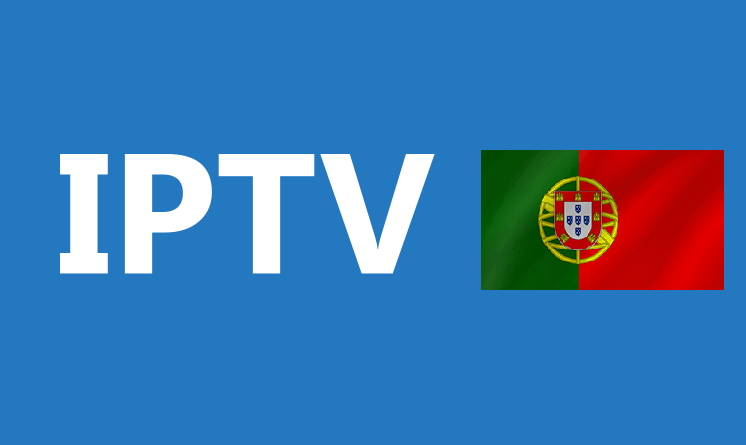IPTV PORTUGAL, or Internet Protocol Television, is a system where television content (live TV channels, movies, and series) is delivered over the internet rather than using traditional broadcast methods like satellite, cable, or terrestrial TV. Instead of tuning into a frequency on a TV tuner, users stream video via their internet connection.
Key aspects of IPTV:
-
Transmission over IP networks: Data (video + audio) is sent as Internet Protocol packets.
-
Types of content:
-
Live TV: real‑time streaming of channels.
-
Video on Demand (VOD): movies, series, or programs that you can watch whenever you want.
-
Time-shift / Catch-up TV: the ability to rewind or watch programs after their original broadcast.
-
-
Device compatibility: Smart TVs, Android / iOS devices, TV boxes, PCs, etc.
-
Quality options: Many IPTV services support HD, Full HD, and even 4K, depending on the provider and your internet speed.
2. Why Is IPTV Growing in Portugal?
Several local and global trends have made IPTV increasingly popular in Portugal:
-
Improved Internet Infrastructure
Portugal has made substantial progress in broadband deployment — especially fiber — enabling many households to use high-speed, stable connections. A good connection is essential for smooth IPTV streaming. -
Value for Money
Compared to traditional pay-TV packages (via cable or satellite), IPTV can be more flexible and cost-effective. Some IPTV services advertise a lower monthly cost, no long-term contracts, and access to many more channels or on-demand content. -
Device Flexibility
Given how many people now use smart devices — smart TVs, tablets, phones — IPTV adapts naturally to this usage pattern. You don’t need to rely on a set-top box necessarily; many apps and players support IPTV over different platforms. -
Rich Content Offerings
IPTV services often bundle a large number of channels (local Portuguese, international) plus VOD content: films, series, sports, and more. -
Ease of Setup
Unlike traditional TV that may require a technician, satellite dish, or cable installation, many IPTV services can be configured with a few clicks/manual steps by the user.
3. Types of IPTV Services in Portugal
However, not all IPTV is the same. For a beginner, it’s crucial to understand the difference between legal (licensed) and illegal (unlicensed or pirate) IPTV.
3.1 Legal / Licensed IPTV
-
These are providers who have acquired proper licensing for the content they offer.
-
They pay rights holders (broadcasters, studios) for permission to stream their channels or shows.
-
Often, these legitimate IP-based TV services are offered by established companies, telecom operators, or certified IPTV providers.
-
Users of legal IPTV can expect greater stability, better support, transparency in pricing, and a lower risk of legal and security troubles.
-
Legal services are more likely to respect consumer protection laws, GDPR (data protection), and have acceptable terms of service.
3.2 Illegal / Unlicensed IPTV
-
These services operate without proper rights to some or all the content they provide.
-
They may offer very large channel lists (sometimes thousands), premium content (sports, movies) at very low fees.
-
However, there are significant risks:
-
Copyright infringement: The content may be streamed without authorization.
-
Legal consequences: Users or resellers could face penalties.
-
Security risks: Malicious software, phishing, or data collection may occur.
-
Service instability: Streams may buffer, disappear, or be shut down.
-
No consumer protections: Refunds, service guarantees, or customer support may be poor or non-existent.
-
Because of these risks, distinguishing between legal and illegal IPTV is one of the most critical steps for consumers.
4. Legal & Regulatory Context in Portugal
Understanding how IPTV is regulated in Portugal is essential for safe and informed use.
4.1 Copyright and Licensing
-
IPTV providers must secure rights for the content they stream. This means paying for broadcast rights for channels, shows, and sporting events.
-
The Portuguese framework for copyright (including television) protects creators and rights holders, so unlicensed distribution is a serious issue.
4.2 Regulatory Bodies
-
ANACOM (Autoridade Nacional de Comunicações) plays a role in regulating telecommunications, but content licensing (audiovisual rights) involves different stakeholders (publishers, content owners).
-
Providers must comply not only with broadcasting regulations but also consumer protection (transparent pricing, contract clarity) and data protection (GDPR).
4.3 Risks and Enforcement
-
Subscribing to or distributing unlicensed IPTV can lead to legal consequences. Though individual users may face lesser risk, resellers or commercial distributors can be exposed to prosecution.
-
Security authorities have begun targeting illegal IPTV services due to their link with piracy and copyright violations.
-
On the user side, there may also be data privacy risks or malware if subscribing to dubious services.
5. Benefits of IPTV for Portuguese Users
If used correctly (i.e., with a legal provider), IPTV offers many advantages to users in Portugal:
-
Cost Savings
-
Potentially lower monthly fees than traditional TV packages.
-
No need for physical infrastructure (dish, special wiring).
-
-
Flexibility & Convenience
-
Watch on multiple devices (TV, phone, tablet, PC).
-
Pause, rewind, or record (depending on the service).
-
-
High-Quality Streams
-
Many services support HD, Full HD, and 4K, assuming sufficient bandwidth.
-
Good services optimize for stability (buffering, server uptime).
-
-
Broad Content Library
-
Access to Portuguese channels (e.g., RTP, SIC, TVI) and international ones.
-
On-demand catalogs with movies, series, catch-up TV.
-
Sports and pay-per-view (PPV) content may be available in certain legal offerings. CVCE
-
-
User Experience
-
Electronic Program Guide (EPG) helps navigate schedules.
-
Customizable favorites, parental controls, and user interface suited to device.
-









